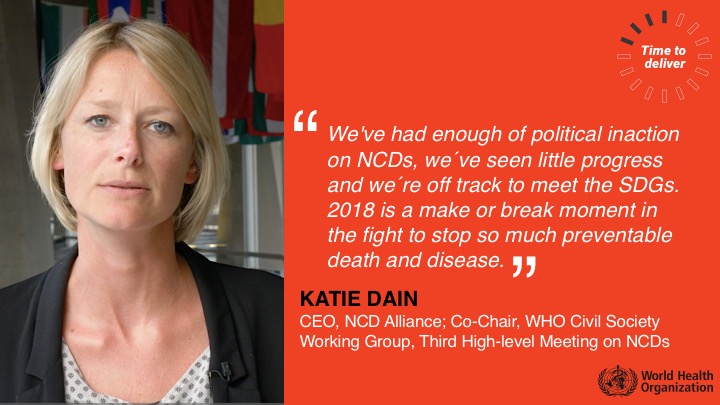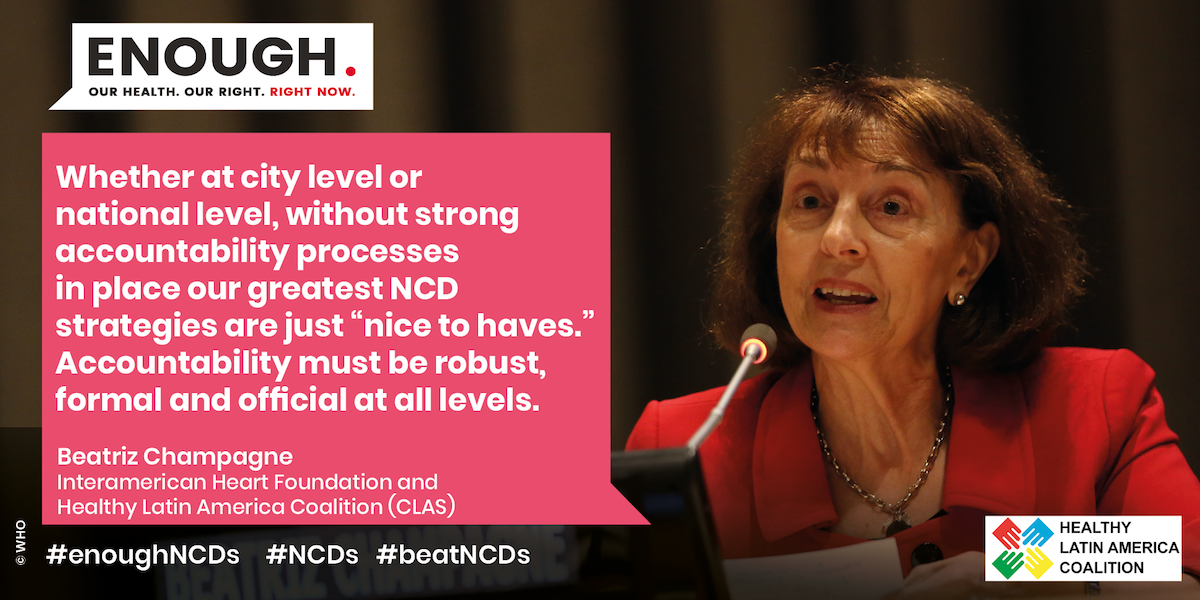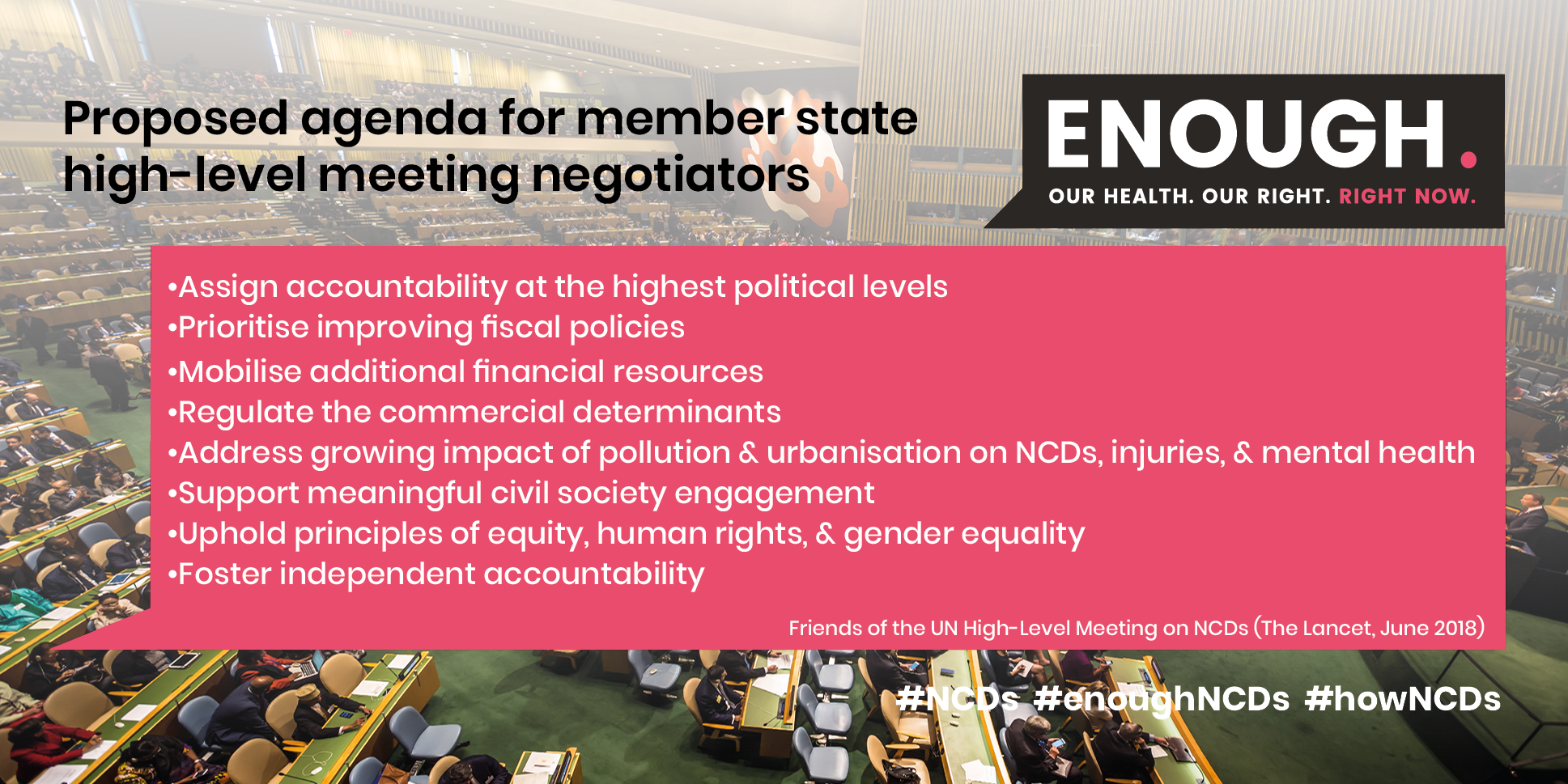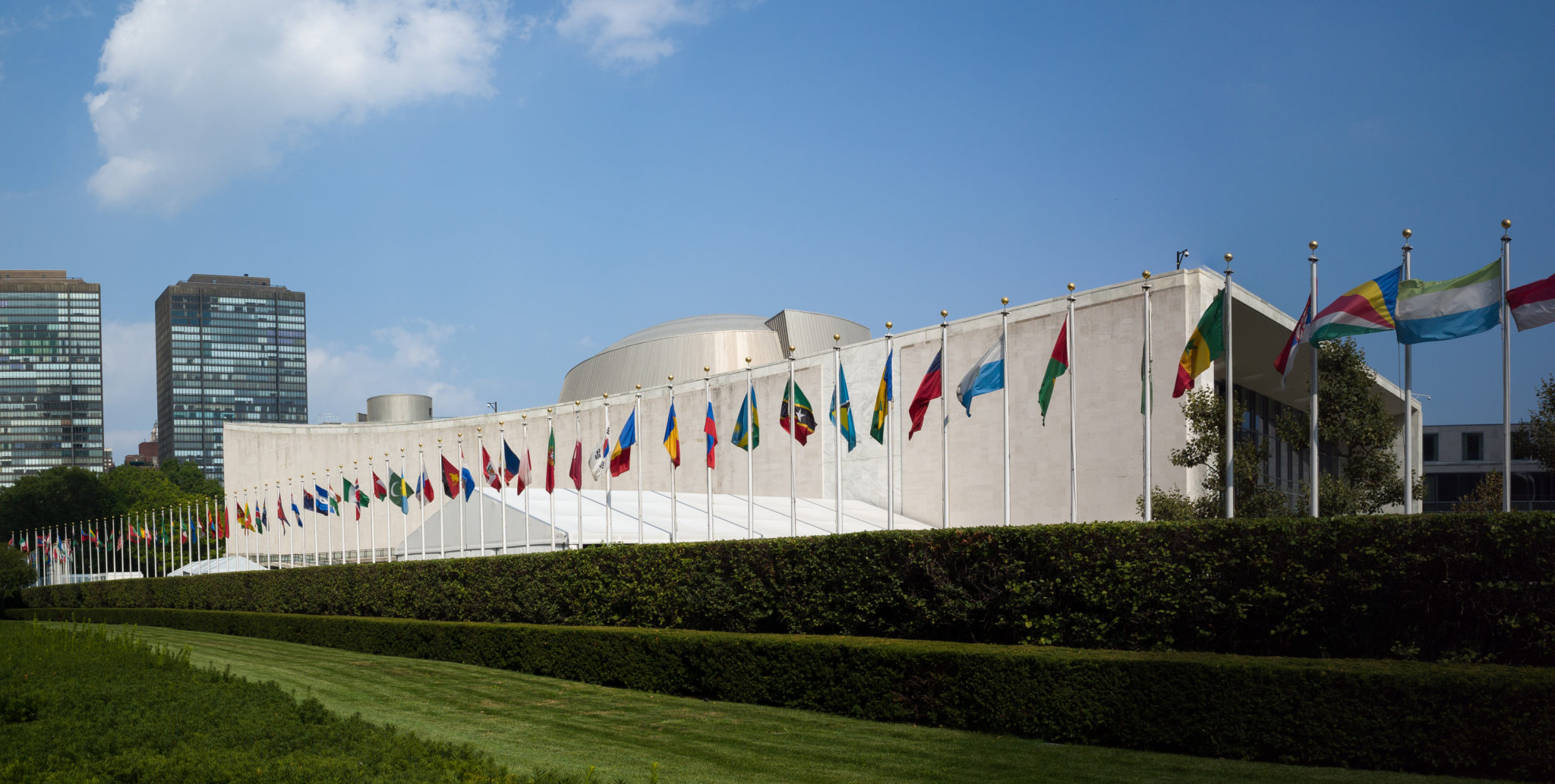
Time to Deliver: A Do or Die moment for NCDs
Friday, 1 June 2018 (Geneva, Switzerland) —The NCD Alliance today warmly welcomed the report of the WHO Independent High-Level Commission on Noncommunicable Diseases (NCDs), Time To Deliver, launched in Geneva, Switzerland, ahead of crucial negotiations in preparation for the United Nations High-Level Meeting on NCDs taking place in New York this coming September.
“It is indeed time to deliver – 2018 is a do or die moment for NCDs and we need to put a brake on countries sleep walking into a sick future,” said Katie Dain, CEO of the NCD Alliance and a member of the High-Level Commission. “The Commission’s report firmly draws a line in the sand on the need to accept that progress to date has been severely inadequate, and that unless serious and committed national and global political action is taken now, the health and economic consequences will further spiral out of control.”
“For the first time in history, NCDs, many of which are preventable, are killing more people than infectious diseases, and producing misery for millions more. We have had enough of political inaction on NCDs, there has been too little progress and we’re off track to achieve the Sustainable Development Goals (SDGs).”
The NCD Alliance strongly supports the Commission’s recommendations to governments to scale up of resources commensurate with the burden, adopt a sharpened focus on implementing a priority set of cost-effective interventions, galvanise a more effective and meaningful engagement with civil society, and establish stronger accountability for commitments and resources.
“The clock is ticking. 15 million people will have died prematurely this past year alone. It’s time to say ENOUGH!” – NCDA CEO Katie Dain
A highlight of the report is the Commission´s call for ownership of national NCD responses from the very top – Prime Ministers and Presidents, vital, given the causes
and solutions for NCDs extend well beyond the health sector. The Commission itself includes in its membership a number of important political leaders, the current Presidents of Uruguay, Sri Lanka and Finland as well as a former President of Chile.
“But we can count on two hands the number of other Presidents and Prime Ministers who have been courageous and visionary when it comes to their citizens’ health,” said Dain. “Something has got to give if we are to avoid unnecessary suffering.”
Encouraging recommendations
The NCD Alliance is encouraged by the recommendations on financing, the focus on engagement with civil society and people living with NCDs, and very significantly, accountability.
“We cannot begin to make inroads into the NCD epidemic until we are better placed to know what needs improving – put simply, we need more effective monitoring and surveillance to both keep governments honest, as well as inform them,” said Dain.
The establishment of NCD Countdown, an independent, inclusive and collaborative accountability mechanism designed to stimulate progress towards the 2030 NCD targets and based on the successful Countdown to 2030 for Maternal, Newborn and Child Survival, is a landmark collaboration between the World Health Organization, The Lancet, the NCD Alliance, Imperial College London’s WHO Collaborating Centre on NCD Surveillance and Epidemiology, and academics from all regions.
The NCD Alliance believes the report did not sufficiently resolve three important issues:
- The unhealthy commodity industries (big tobacco, alcohol and food) have a well-documented history of infiltrating public health organisations, subverting science, and interfering with and undermining public policy that would promote health. One of the major reasons for slow progress against NCDs is that some industries profit from the increased sales of products that harm people and therefore lose money if public health succeeds in protecting people’s health.
- Alcohol remains marginalised in the report and as a public health threat worldwide. Taxation and the regulation of marketing and sales are critically important interventions that need to be urgently scaled up, but have been blocked by industry in many countries.
- Sugar, added sugars, and, in particular, sugar-sweetened beverages, are leading drivers of the obesity epidemic. Promising evidence suggests that taxes on SSBs substantially reduce consumption, and yet fiscal policies on sugar sweetened beverages are entirely omitted from the recommendations – a limitation which is noted in the report’s opening message from the co-chairs. A more comprehensive approach to taxation – including sugar, alcohol and tobacco (referred to as STAX) – provides a win-win policy measure to governments for public health, domestic resource mobilisation and equity.
“This report informs us of the golden opportunity the 2018 UN HLM presents,” said Dain. “The clock is ticking. 15 million people will have died prematurely this past year alone. It’s time to say ENOUGH!
For more information please contact:
Michael Kessler
Mob:+34 655 792 699
Email: michael.kessler@intoon-media.com
Skype: mickgpi
Twitter: @mickessler




